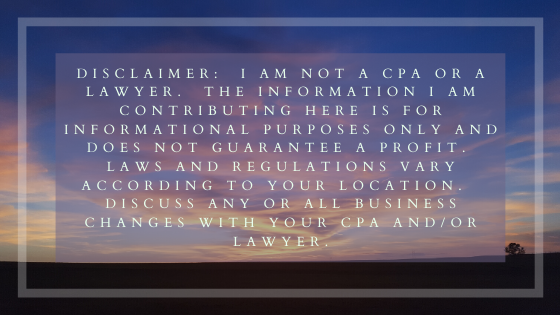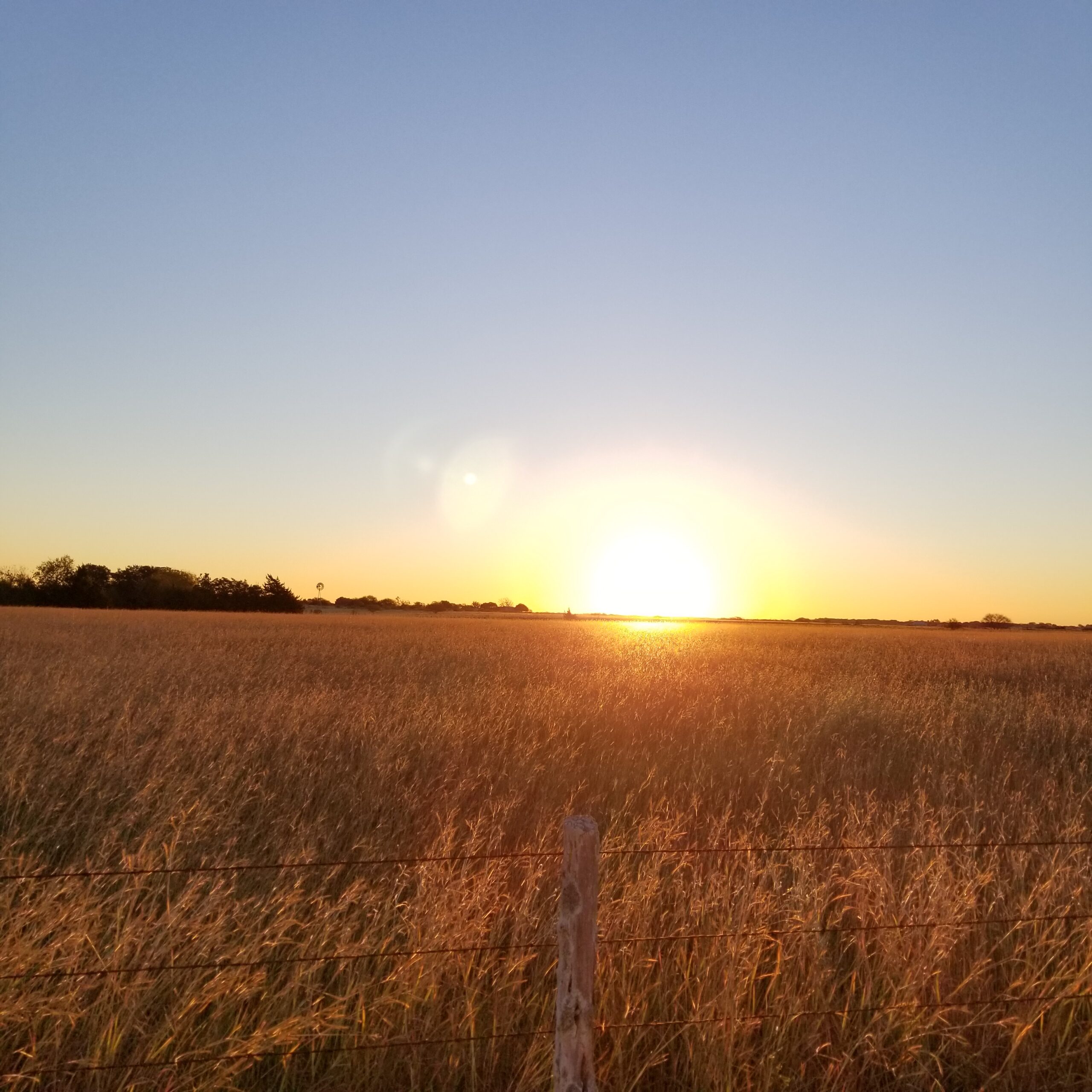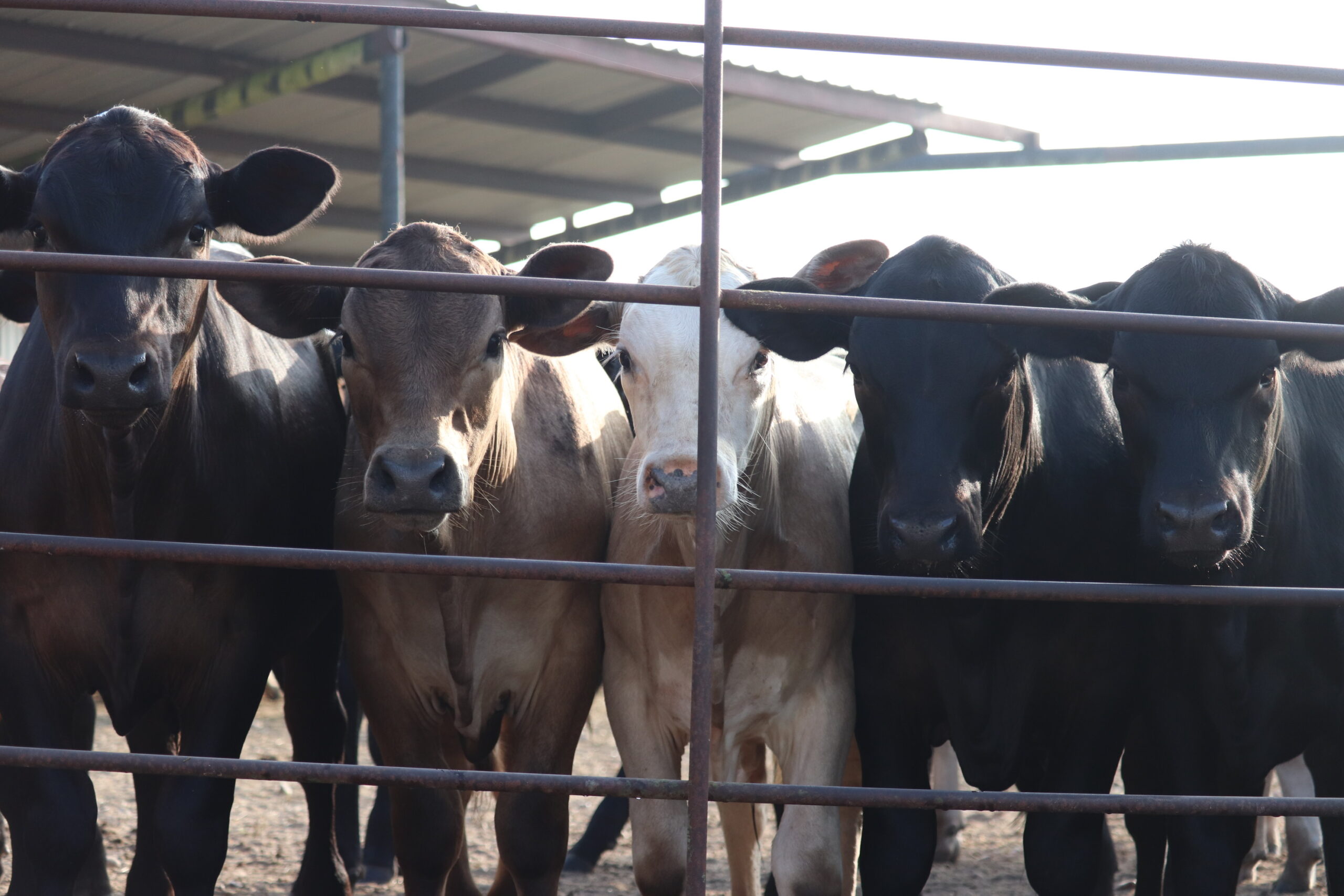Starting a successful agricultural business doesn’t mean you have to be a brand new owner. If you have been in the industry for any length of time, you have to know how to run a successful business. In other words, this advice isn’t just for new or potential owners. You can view your current agricultural business with fresh eyes and see where you can improve or eliminate anything.
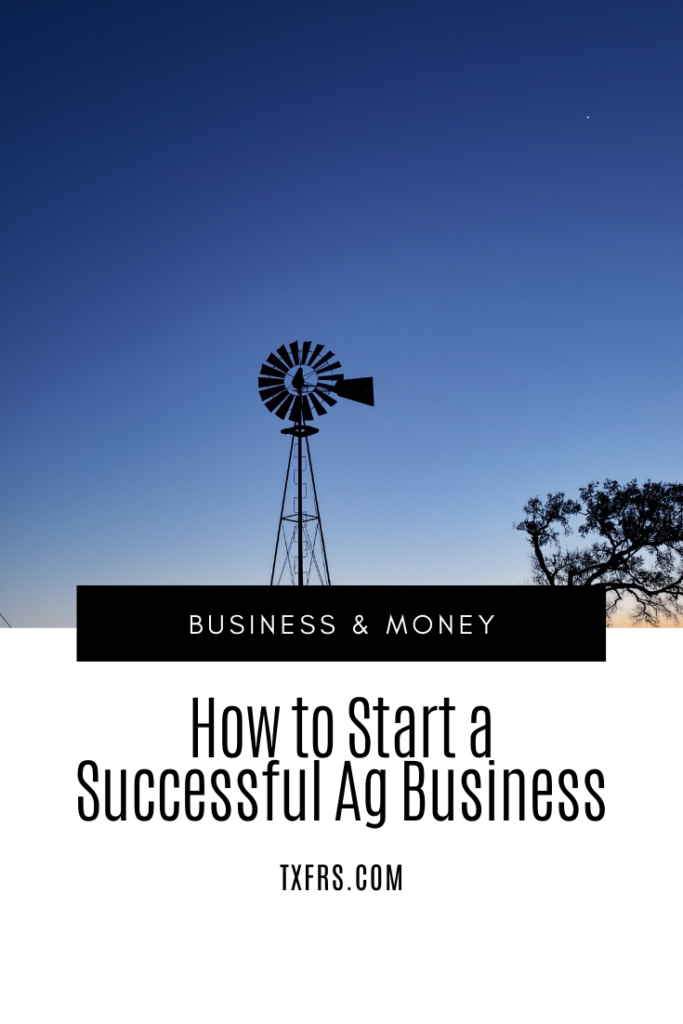
Why do you want to start an agricultural business?
Before you get started in any business, it’s important to know WHY you want to start a business. Agriculture has ups and downs that will be out of your control. Natural disasters, market fluctuation, loss, and your personal life will take a toll on your business.
A strong “why”, or reason, to pursue your business idea will be the thing guiding you through the good and bad times. You have to know why you are getting into business and then you have to know why you are really getting into the business.
Your “why” will be your guide as you make your business decisions.
For example, let’s say you are starting a micro-farm in your backyard to make extra money at a farmer’s market. Your “WHY” is to make extra money. Take it a step further. Why are you needing/wanting to make extra money? Will this be fun money that won’t have to come out of your regular bank account? Is this to contribute money to your household? Perhaps it is a side-hustle that you and your family can do for fun to make money for a real vacation?
Your “WHY” has to be specific.
Write it down.
This is the ultimate reason you are starting this agriculture business. Refer to this often, especially when it comes to making business decisions or when you feel like giving up.
Time Commitments
It’s fun to think about farming and ranching as a business, but in reality, you need to ask yourself:
Do I have time to commit to this?
Businesses, no matter what they are, take a considerable amount of time to start and grow. If you are expecting to make a full-time income on a less than part-time schedule, you will be in for a big surprise.
No, you cannot spend all of your spare time on your new business, but you will have to invest your time wisely. Micro farming will require planning for planting, a watering schedule, and harvesting. Not to mention all the other things you have to do in between. Marketing and deliveries will be time away from your business but are just as important as growing the produce.
Cattle operations also require planning and labor. Undesirable weather conditions like drought and winter weather will have increased demand on your time for feeding. Thinking about starting a custom work business? You have to “make hay when the sun shines” which means your time commitment won’t fit into a schedule.
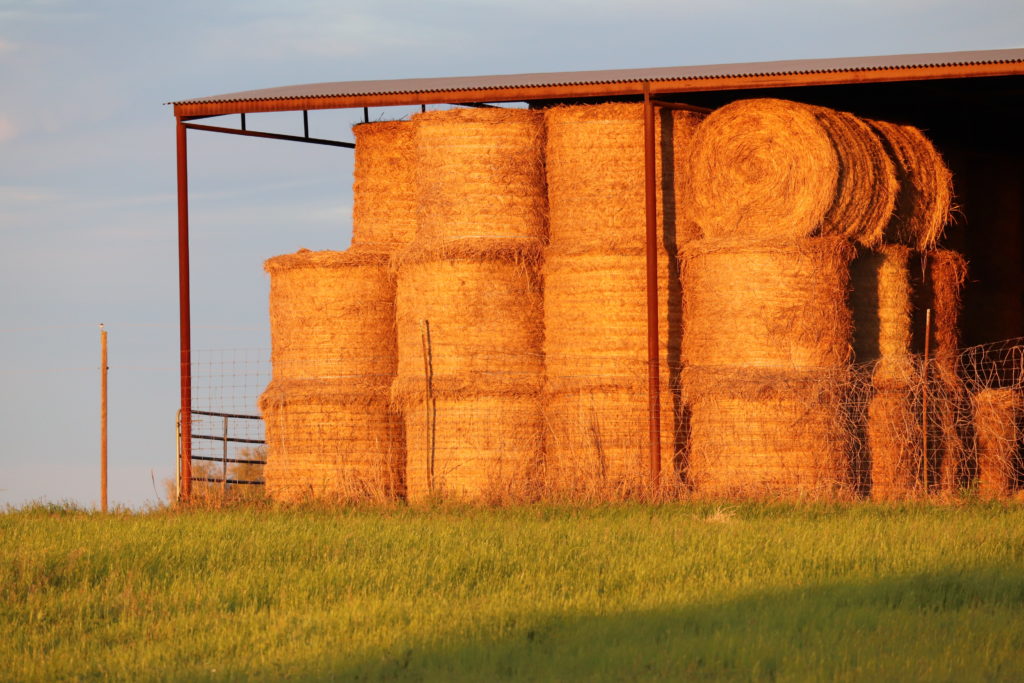
These things can be hired out. But, everything that an employee or contractor does for you will have to be paid for. The old saying “time is money” has never been more true here. In order to have a successful ag business, you have to put in the time.
Start with the time you have. Do not bank on a borrowed time. Make sure that you have the time you need to get started. Put this in your calendar as an appointment you would never miss and then, don’t miss it.
When things are new or not producing income, it is easier for them to be dismissed. Refer back to your “WHY” often. Make the time commitment you need to make your business happen for you.
successful Business vs Hobby
Do you want to make money from this business?
Look back at your “Why”. What was the driving reason you wanted to create this agriculture business?
If your primary goal isn’t to make money, then you are not wanting to create a business, you are creating a hobby. Having a loss year after year will raise a red flag to the government.
Going into this thinking, “I am going to buy 10 cows and if I make money that’s great…” is not what the government wants to hear. There will be a lot of tax breaks and laws for your business along the way. Because of this, they also want to see you turn (or at least try to turn) a profit.
If you are starting a business to offset other income, proceed with caution, and discuss this with your CPA.
From the financial side, when you are growing your operation and need loan funds from your bank, they are interested in two things: 1) your business plan and 2) your profit and loss. It may be hard to convince a bank to give you money for your operation if you cannot show that you can pay the money back.
Making an appointment with your CPA will help ensure you are setting up your business for the right reasons.
Business Plan
Before you start your business, make sure you know where you want to go with your business. Having a business plan in place will guide you as you make decisions for your business.

Is your business idea sustainable? Will this produce be an in-demand product or service? What income streams will you be able to add?
Business plans can be a one-page plan or have as many pages as a book. The point of it is to be a map of your business. Everything will not go as planned, but being prepared will help your business rebound or pivot when needed.
Read more about business planning in Mike McKeever’s How to Write a Business Plan.
Regulations, Permits, & Insurance
Micro-businesses can be found everywhere. Creating and dreaming up that business that happens to be fun for you can come to a crashing halt if you are building that business illegally.
Check with your city, county, and state for any regulations and permits you may need. These vary by location, so be sure to do research for your specific zip code. Raising chickens in town will have regulations that rural raisers won’t have. Fences and structures may have fines if built without a permit in your neighborhood.
Agriculture insurances come in all forms, but you will have to look for a company that covers ag business. Set up a call or meeting with an agent who understands the direction you want your business to go.
Some general farm insurances can cover everything from selling eggs to custom farm work damage. But, you don’t want to buy more than you need. This practice can cut into your profits in the end.
Business Entities
Legal business entities are the different types of entities you can create to protect your business, and yourself. This is where your lawyer and CPA come in handy.
The purpose of a protected entity is to protect and separate your personal assets and debts from your business assets and debts. But, you cannot set up a legal entity like an LLC (Limited Liability Company) and run your personal purchases through your business account and vise versa. This is referred to as “piercing to corporate veil” and there are serious consequences when this happens.
This is a deep subject and should not be taken lightly. I encourage you to understand how different entities work. Corporations, trusts, and sole proprietorships function differently.
Keep in mind, filing for a DBA (Doing Business As) or fictitious name is not legal protection for you. It is only a different name from who you are.
Ordering a sign for your “Windy Hills Farm” and creating a Facebook page for it does not offer you legal protection. It simply tells people this is what you call the business side of yourself. But, filing with your state for “Windy Hills Farm, LLC” or “Windy Hills Farm, Inc” etc makes it a legal business entity.
Partnerships will also have an effect on your taxes and business structure. Starting a business with your bestie is great until the business hits a snag. Make sure you are clear with all parties involved in the direction the business will grow and operate. Personal debts from any party can have a huge impact on a business that is not in a legal entity.
Do some research and reading before you meet with your lawyer and CPA. Have your business plan ready so they can help you form the entity that is best for you and your business. When your hobby is making money, the government still wants to know about it.
Business Bank Accounts
When you have your business set up in either a DBA or protected entity, you will need to have a separate bank account and often, a few bank accounts.
Your business money must be kept separate from your personal accounts. Your CPA can talk you through how you can pay yourself from your business. The entity you have chosen will have a specific way the owner can take compensation. Know how this works before you choose an entity for your business.
When you open your business account, make sure you choose one that will support your business and its growth. Small, local banks usually have tiny or no fees. Larger corporate banks have larger fees associated with it, usually monthly on a minimum balance. These fees will cut into your funds if you do not meet their minimum requirements.
Local banks tend to work better for small businesses, especially those in the agricultural industry. It is important to establish a relationship with the bank so they understand how they can best help and support your business.
Start Where You Are
Any business you build will not be an overnight success. Don’t go into debt trying to get somewhere fast. Do your research. Take opportunities to meet with people in the business you want to be in.
The agricultural industry is constantly changing. Know where you want to go and be ready for anything. Getting started on the right foundation can set you up for a better profit and a plan to overcome any obstacles.
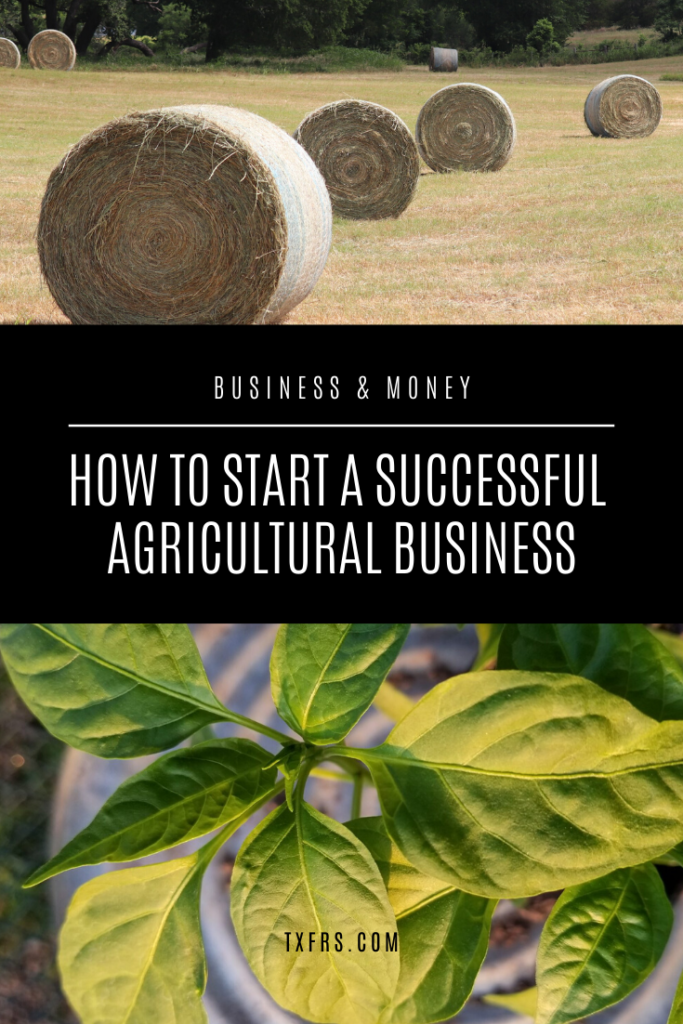
resources
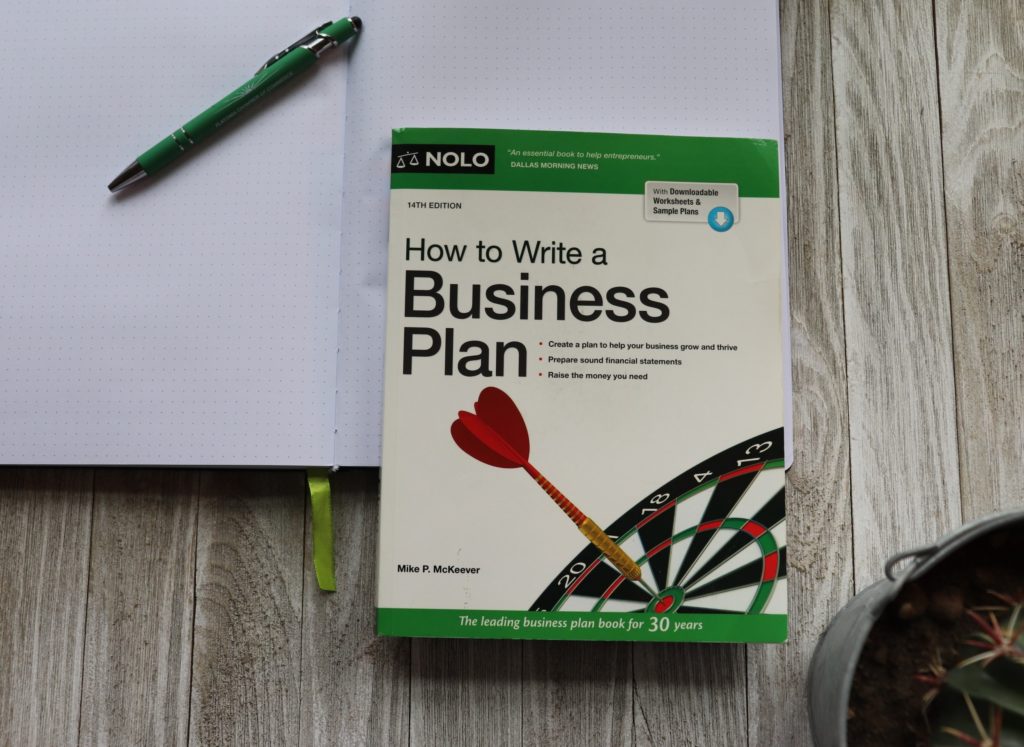
In case you missed this…
How to Start a Profitable Farm or Ranch Business
Learn how to start a Profitable Farm or Ranch Business with smart planning, cost tracking, and price strategies-so you can make money.
Continue Reading How to Start a Profitable Farm or Ranch Business
A Prayer for New Farmers & Ranchers
Remember to center your business on God and find time to pray. Use this prayer to guide you throughout your day. Dear God, I call on you to bless this business you have called me to start. Remind me to begin each day with a grateful heart and a pure mind. Please keep my health…
What is a Business Bank Account and Why You Need One for Your Ag Business
There are many reasons to open a bank account for your agriculture business separate from your personal account. No matter your income, there are advantages.
Continue Reading What is a Business Bank Account and Why You Need One for Your Ag Business
Can I make Money in the Livestock Business?
Can you make money in the livestock business? Yes. Start to view your operation like a business. There are several things you can do to increase profits.
Continue Reading Can I make Money in the Livestock Business?
